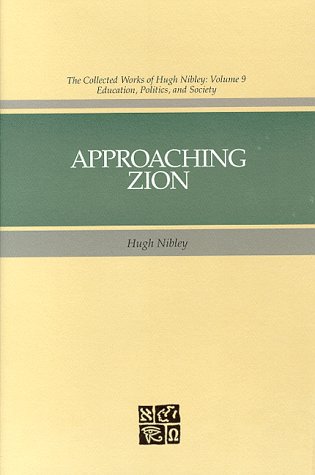Category: Latter-day Saint Thought
-
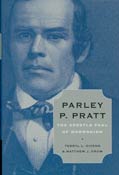
The Life and Times of Parley P. Pratt
I recently finished reading Parley P. Pratt: The Apostle Paul of Mormonism (OUP, 2011), by Terryl L. Givens and Matthew J. Grow. Most Mormons know Pratt by name from reading the Doctrine and Covenants. A few Mormons have read Pratt’s autobiography, which gives some idea of the extent of his missionary travels, but provides little…
-

The Approaching Zion Project: Work We Must, but the Lunch Is Free
As summer ends, my time to engage with Nibley’s social criticisms has begun to return. Of course, I say that the week before classes begin, so a couple things I want to point out before we get started: first, this is a long, detailed chapter.
-

Confessions of a Former Stay-at-Home Mom
After nine years as a stay-at-home mom, I recently got a full-time job. I’ve been working for a month now, which seems long enough to state some preliminary observations about how things are going. The short answer is, I am happier than I’ve been in quite a while. I have way more patience for my…
-

A Mother Here – New Art and Poetry Contest
There have been LDS art contests in the past, either sponsored by LDS church institutions or by private organizations, but none have yet focused on Heavenly Mother as their theme. That changed this month with the newly announced A Mother Here Art and Poetry Contest. Aiming to stimulate the visual and poetic expression of Heavenly…
-
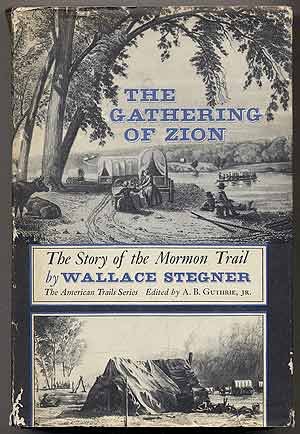
Not quite “Faith in Every Footstep”
It’s no surprise that my favorite book about the pioneers was not written by a Mormon.
-
We’re not equal
God may be no respecter of persons, but everyone else is. We’re not equal, and the roles we fulfill in the church are not equal, so stop saying they are.
-

The Earliest New Testament
This is the third post (first, second) in a series on the New Testament. This post covers what should probably have been the first post: consideration of the seven undisputed letters of Paul, chronologically the earliest documents in the New Testament, written in the 50s. They give us the best information we have on the…
-

King Noah’s Blues
I could see them before I crossed Michigan Avenue into Grant Park. There were probably five of them, holding big yellow signs with blocky letters, Bible verses. It seemed out of place, fifty feet in front of the entrance to the Chicago Blues Festival, but maybe I just didn’t understand the logic behind it. I…
-
Damnable Defaults
A great deal of the discussion on women in the priesthood that I see happening right now[1] concerns our efforts to control and propagate various narratives. Personally, I find our current default narratives even more upsetting than our current practices.
-
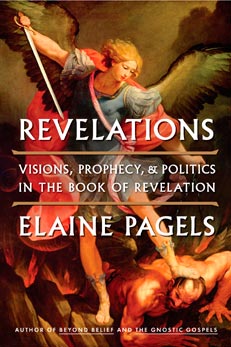
Revelation
My previous post on the upcoming BYU New Testament Commentary series was so well received I have decided to do some follow-up posts discussing individual books. I’ll start with Revelation, partly because that will be the first volume in the BYU series but also because I happen to have a copy of Elaine Pagels’ Revelations:…
-

Stewards of Prudence and Altruism
Prudence and altruism combined allow us to delay personal gratification or even make sacrifices for the benefit of future people who have not yet been born. The hearts of the fathers must turn to their children
-
BYU’s New Testament Commentary
A website for the upcoming BYU New Testament Commentary series has popped up. The short announcement on the main page promises “a multi-volume commentary on the New Testament along with a new rendition of the Greek New Testament texts,” which will “combine the best of ancient linguistic and historical scholarship with Latter-day Saint doctrinal perspectives.”…
-

God and Galaxies
Elder Ballard started out his recent Conference talk “This Is My Work and My Glory” with this description and commentary on the wonder of the night sky: A few weeks ago, on a cold, dark winter’s night, my wife, Barbara, and I looked in awe up at the sky. The millions of stars seemed exceptionally…
-
Socially Constructed Mormonism
This is the second post (see first post) discussing ideas presented in the recently published memoir of retired LDS sociologist Armand Mauss, Shifting Borders and a Tattered Passport: Intellectual Journeys of a Mormon Academic (Univ. of Utah Press, 2012; publisher’s page). After taking five years away from his graduate work to serve as a counselor…
-
Established by Jesus Christ himself
In a recent news article discussing the Ordain Women community and its upcoming inaugural meeting, LDS church spokeswoman Jessica Moody stated that the male-only priesthood “was established by Jesus Christ himself and is not a decision to be made by those on Earth.” Of course, there may be a few questions about whether this statement…
-
I’m a Mormon, and I believe that women
. . . should be eligible for Priesthood ordination. So do these other lovely people. Please check out some of the profiles, if it’s a topic that interests you, or visit our facebook page for more discussion. I know it’s not everyone’s cup of tea, and I know that reasonable people can disagree here. But…
-
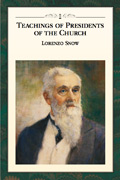
My Problem With the Couplet
In 1840, almost nine years before being called as an LDS apostle, while he was listening to a friend read from the scriptures, Lorenzo Snow experienced a sudden enlightenment that he apparently regarded as a revelation from God. He summarized his enlightenment in this well known verse (which I’ll call the Couplet): As man now…
-
Knowledge or Faith?
Last month, Jacob over at BCC started an interesting series on the philosophy of religion, which I hope he continues at some point. Not being quite ready to spring $120 for a copy of the recommended book, I tracked down a library copy of a shorter and very readable introductory text, William L. Rowe’s Philosophy…
-
Understanding Eternity
When I read Stephen Peck’s groundbreaking novella A Short Stay in Hell the idea that struck me more than any other was how little we know about the idea of eternity–and how unfamiliar we are with how long eternity is. We simply have no way of comprehending the time involved. We live in a world…
-
The Problem With Correlation
Over at Worlds Without End, Seth posted Overcoming Correlation, or Mormon Studies and Pastoral Care. Why do we keep talking about Correlation? Obviously, there’s something wrong, but there are various opinions as to what exactly that is and how one might go about fixing it. After recounting his own scholarly engagement with Mormon Studies, Seth…
-
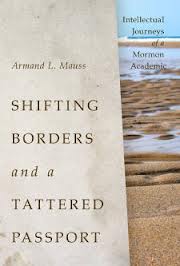
Mauss on Dialogue
I am almost done with the recently published memoir by Armand Mauss, Shifting Borders and a Tattered Passport: Intellectual Journeys of a Mormon Academic (U of U Press, 2012; publisher’s page). Like Leonard Arrington’s earlier memoir, Adventures of a Church Historian, the book is something of a insider’s guided tour of fifty years of Mormon…
-
Tracy McKay fMh Scholarship
Our sisters and brothers in the bloggernacle have turned their virtual relationship into doing tangible good for those in need. Yesterday, Lisa at fMH announced the Tracy McKay fMh Scholarship. I remember last year when Tracy’s ward financial assistance was cut and the immediate action by her fellow bloggers to raise enough money to get…





